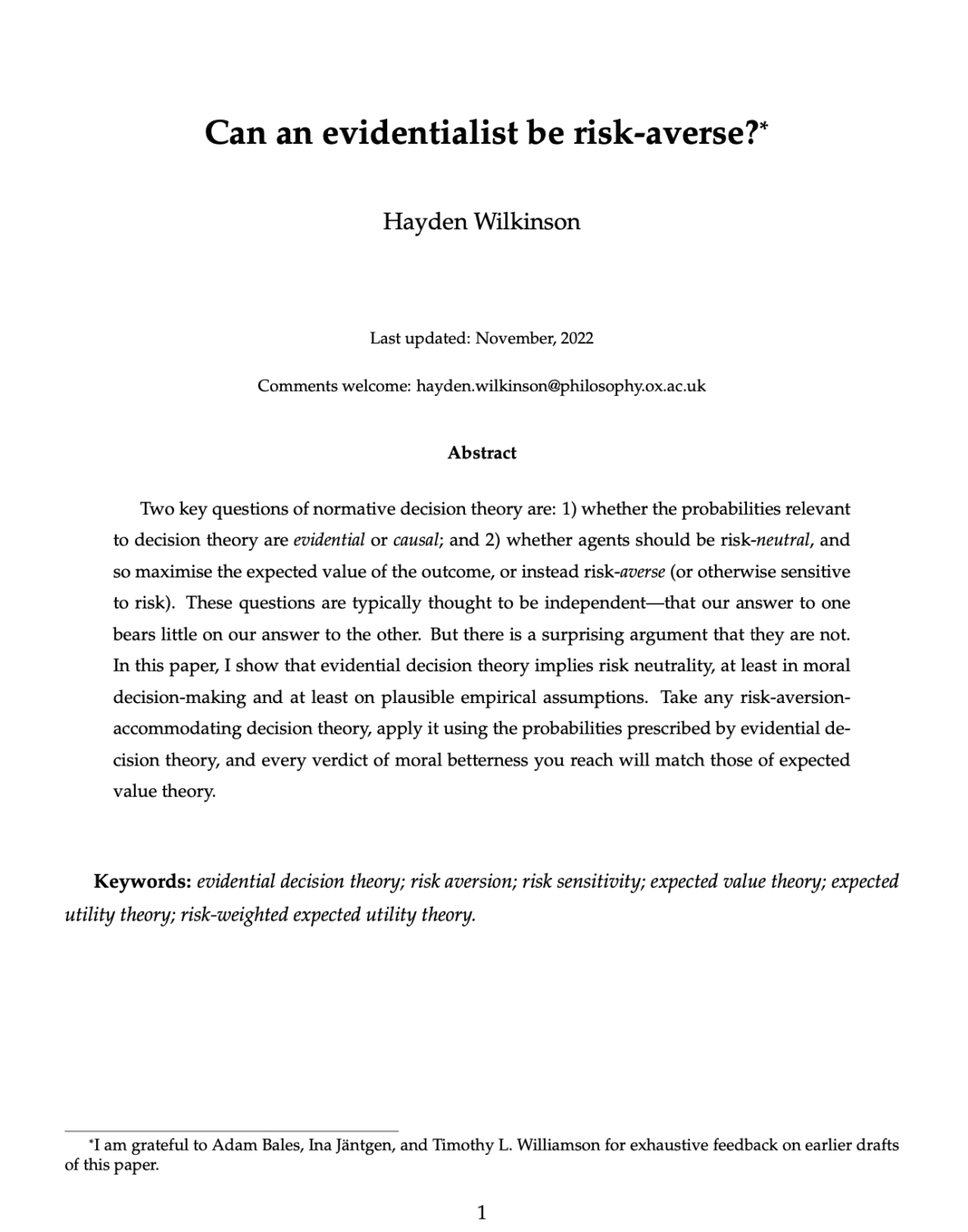Can an evidentialist be risk-averse?
Hayden Wilkonson (Global Priorities Institute, University of Oxford)
GPI Working Paper No. 21-2022
Two key questions of normative decision theory are: 1) whether the probabilities relevant to decision theory are evidential or causal; and 2) whether agents should be risk-neutral, and so maximise the expected value of the outcome, or instead risk-averse (or otherwise sensitive to risk). These questions are typically thought to be independent - that our answer to one bears little on our answer to the other. But there is a surprising argument that they are not. In this paper, I show that evidential decision theory implies risk neutrality, at least in moral decision-making and at least on plausible empirical assumptions. Take any risk-aversion-accommodating decision theory, apply it using the probabilities prescribed by evidential decision theory, and every verdict of moral betterness you reach will match those of expected value theory.
Other working papers
Welfare and felt duration – Andreas Mogensen (Global Priorities Institute, University of Oxford)
How should we understand the duration of a pleasant or unpleasant sensation, insofar as its duration modulates how good or bad the experience is overall? Given that we seem able to distinguish between subjective and objective duration and that how well or badly someone’s life goes is naturally thought of as something to be assessed from her own perspective, it seems intuitive that it is subjective duration that modulates how good or bad an experience is from the perspective of an individual’s welfare. …
Quadratic Funding with Incomplete Information – Luis M. V. Freitas (Global Priorities Institute, University of Oxford) and Wilfredo L. Maldonado (University of Sao Paulo)
Quadratic funding is a public good provision mechanism that satisfies desirable theoretical properties, such as efficiency under complete information, and has been gaining popularity in practical applications. We evaluate this mechanism in a setting of incomplete information regarding individual preferences, and show that this result only holds under knife-edge conditions. We also estimate the inefficiency of the mechanism in a variety of settings and show, in particular, that inefficiency increases…
Social Beneficence – Jacob Barrett (Global Priorities Institute, University of Oxford)
A background assumption in much contemporary political philosophy is that justice is the first virtue of social institutions, taking priority over other values such as beneficence. This assumption is typically treated as a methodological starting point, rather than as following from any particular moral or political theory. In this paper, I challenge this assumption.

